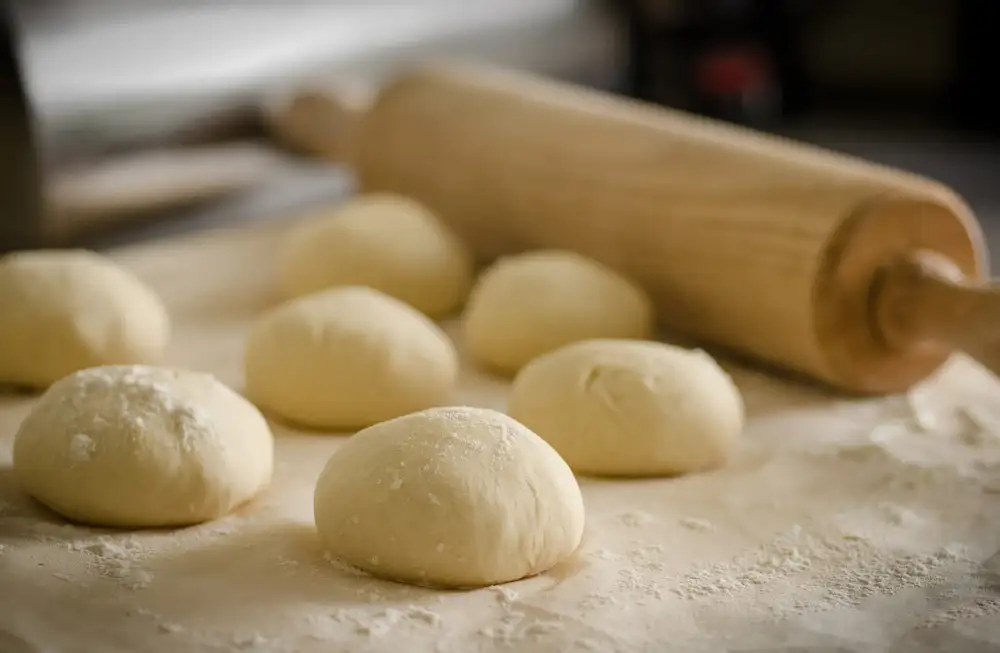Recipe Critic: A Delectable Review of Mouthwatering Recipes

Recipe critique is an essential aspect of the culinary world, where food enthusiasts and professionals analyze and evaluate recipes to provide valuable feedback. It involves a detailed examination of various elements such as ingredients, cooking techniques, measurements, and overall taste. Recipe critics play a crucial role in helping cooks and chefs refine their creations and ensure that they deliver exceptional flavors. In this article, we will explore the significance of recipe critiques in the food industry and provide a step-by-step guide on how to write an effective critique. So, let's dive into the delectable world of recipe critique!
Importance of recipe critics in the food industry
Recipe critics play a vital role in the food industry. Their expertise and unbiased opinions help both professional chefs and home cooks improve their culinary skills. By providing constructive feedback, recipe critics contribute to the development of new recipes, techniques, and flavors. They also help consumers make informed choices by evaluating the accuracy of recipes and highlighting potential pitfalls. Recipe critics are essential in maintaining high standards in the food industry and ensuring that every dish is a masterpiece.
Factors to consider when critiquing a recipe
When critiquing a recipe, there are several factors to consider in order to provide a fair and accurate assessment. Firstly, it is important to evaluate the clarity of the instructions. Are they easy to understand and follow? Are all the steps clearly explained? Additionally, consider the accuracy of the measurements provided. Are they precise and consistent? Any discrepancies could lead to a failed outcome for the reader. Another factor to consider is the balance of flavors in the recipe. Does it have a good combination of sweet, salty, sour, and savory elements? Lastly, take into account the overall presentation of the dish. Does it look appetizing and visually appealing? Considering these factors will help ensure a comprehensive critique of any recipe.
Step-by-step guide to writing a recipe critique
When writing a recipe critique, it is important to follow a step-by-step guide to ensure that your review is thorough and helpful. Here are the key steps to consider:
1. Preparation: Begin by reading the recipe carefully and gathering all the necessary ingredients and equipment. This will give you a better understanding of the recipe before you start cooking.
2. Execution: Follow the recipe instructions precisely, paying attention to details such as cooking times and temperatures. Take notes on any issues or challenges you encounter during the cooking process.
3. Taste test: Once the dish is prepared, taste it critically. Evaluate the flavors, textures, and overall balance of the dish. Note any adjustments or improvements that could be made.
4. Presentation: Consider the visual appeal of the dish. Assess its appearance, plating techniques, and garnishes. Take note of any suggestions for enhancing its presentation.
5. Structure: Evaluate how well the recipe is structured and organized. Is it easy to follow? Are there any missing or unclear steps? Provide feedback on how the recipe could be improved in terms of clarity and structure.
6. Feedback: Write your critique in a constructive manner, highlighting both positive aspects and areas for improvement. Be specific in your comments, providing examples or suggestions for modifications.
7. Conclusion: Summarize your overall impressions of the recipe, including its strengths and weaknesses. Offer recommendations for potential changes or adaptations that would enhance the dish.
By following this step-by-step guide, you can write a comprehensive and valuable critique that will help both chefs and home cooks improve their recipes and culinary skills
Common mistakes to avoid in recipe critiques
When critiquing a recipe, it is important to avoid some common mistakes that can undermine the effectiveness of your critique. One mistake to avoid is being overly negative or harsh in your feedback. While it's important to provide constructive criticism, it's equally important to be respectful and considerate in your approach.
Another mistake to avoid is focusing solely on personal preferences rather than objective analysis. Remember that taste can vary from person to person, so it's important to evaluate a recipe based on its technique, balance of flavors, and overall execution.
Additionally, it's crucial to avoid making assumptions about the recipe or its creator. Instead of assuming that a certain ingredient or step is unnecessary, try to understand the reasoning behind it before passing judgment.
Lastly, make sure to avoid vague or general statements in your critique. Be specific and provide examples when pointing out areas for improvement. This will help the recipe creator understand exactly what needs to be addressed.
By avoiding these common mistakes, you can ensure that your recipe critiques are helpful and constructive, ultimately benefiting both the recipe creator and those who will be using the recipe in the future.
Examples of well-written recipe critiques
Examples of well-written recipe critiques can serve as a valuable reference for aspiring food critics. One such example is a review of a chocolate cake recipe that highlights the moistness and rich flavor of the cake, while also suggesting an improvement in the frosting's sweetness. Another well-written critique is for a pasta dish, which praises the perfect al dente texture of the noodles and suggests adding more garlic to enhance the overall flavor profile. These examples demonstrate how a good recipe critique can provide constructive feedback while appreciating the positive aspects of a dish.
How recipe critiques can improve cooking skills
Recipe critiques play a crucial role in improving cooking skills. By carefully analyzing and providing feedback on recipes, aspiring chefs can learn new techniques, discover flavor combinations, and enhance their culinary knowledge. Recipe critiques help cooks understand the science behind cooking, such as the impact of ingredient ratios or cooking times on the final dish. They also encourage experimentation and creativity in the kitchen, allowing individuals to adapt recipes to suit their personal tastes. Through recipe critiques, cooks can gain valuable insights from experienced chefs and fellow food enthusiasts, enabling them to refine their skills and create exceptional dishes that leave a lasting impression.
In conclusion, recipe critique is an essential aspect of the food industry that allows us to improve and innovate in the culinary world. By providing constructive feedback and sharing our experiences, we contribute to the growth and development of recipes.
Through recipe critiques, we can help chefs and home cooks refine their techniques, enhance flavors, and create unforgettable dishes. It is a way for us to appreciate the effort put into creating these recipes while also encouraging continuous improvement.
So let's embrace the art of recipe critique and become active participants in shaping the future of food. Whether you are a professional critic or a passionate home cook, your opinions matter. Let's celebrate the diversity of flavors and share our knowledge to inspire others on their culinary journeys.
Together, we can unleash the magic in every bite!
Published: 27. 11. 2023
Category: Food



